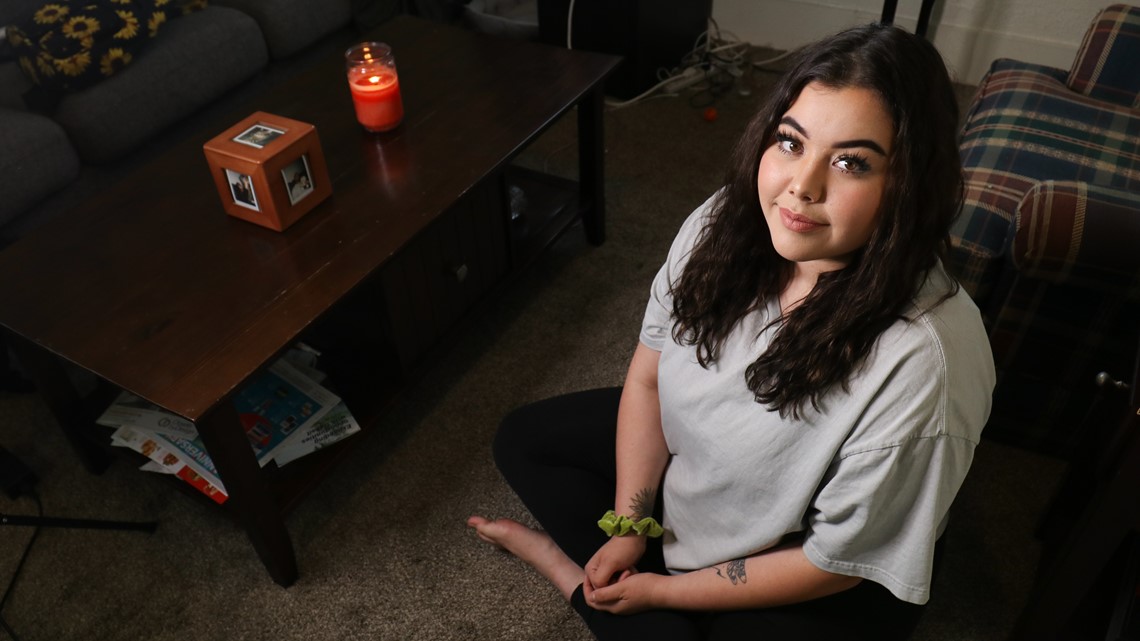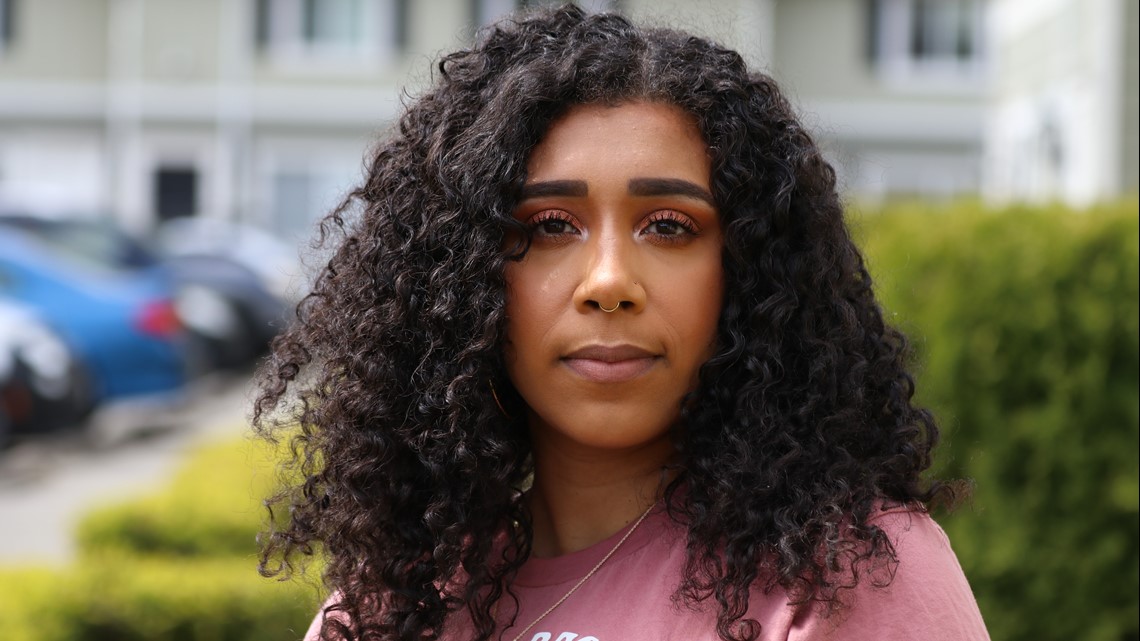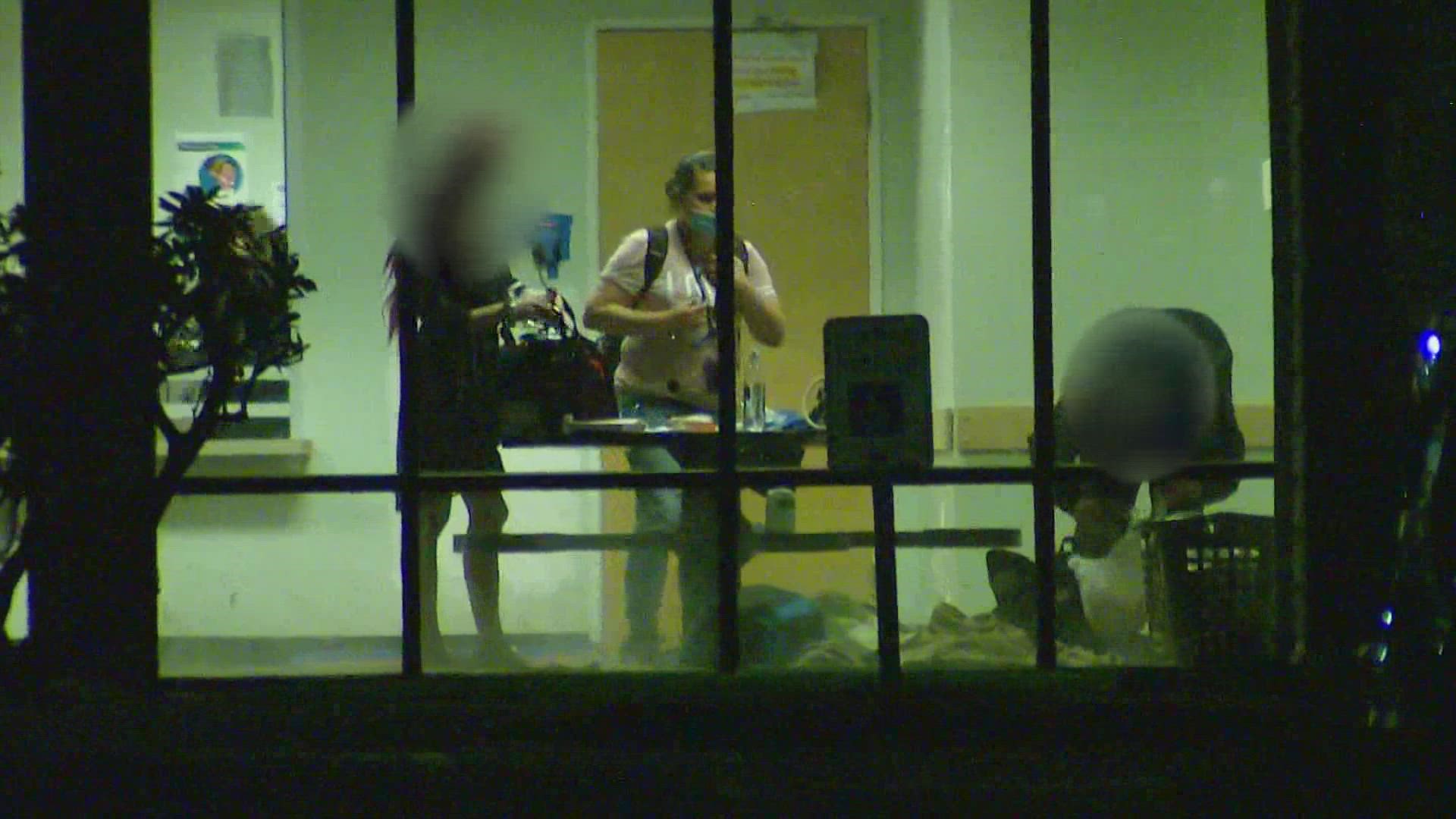As a teenager in Washington state’s foster care system, Taylor Campbell lived in more than 100 different places. But there were hundreds of other times, Campbell said, she refused to go to placements at foster homes and group homes because she didn’t feel comfortable.
“I never ever said I don’t want to go there because of some stupid thing,” said Campbell, 21, who became a ward of the state at age 15. “There were a lot of reasons I always had that were extremely legitimate to make it where it was acceptable for me to say, ‘I don’t want to go there. That is not my home tonight.’”


Washington foster children have historically had the right to turn down placements at foster homes and group homes. It’s a key reason why some of the state’s current and former foster youth, including Campbell, have spent the night with social workers in hotels, state office buildings or in state vehicles, according to social workers at the Washington Department of Children, Youth, and Families (DCYF).
But state officials confirmed Thursday they will try a forceful new approach to change that. As DCYF leaders scramble to meet a Nov. 1 federal court deadline barring the use of hotels and office buildings as housing, the child welfare agency will take legal steps to order some foster youth to go to placements if they refuse.
“For a very small number of youth who repeatedly refuse safe, suitable placements the Department may request that the juvenile court order such youth to accept the safe, suitable placements DCYF has offered,” wrote Jason Wettstein, DCYF communications director, in a statement. “This will help youth move on from hotel placements to an available appropriate placement.”
Some DCYF social workers in King County were informed Wednesday of the agency’s new plan to involve the juvenile court. In an internal email obtained by KING 5, a regional administrator for the department explained to staff that the Washington Attorney General’s office, which provides legal counsel for DCYF, was fully on board with the change in practice.
“They are 100% in support of requesting the court to order a child into placement if they refuse,” wrote Erik Applebee, DCYF’s King County regional administrator, in the Oct. 20 email to staff.
Applebee told employees that in every instance, DCYF social workers would be expected to clearly explain to the court why the department’s proposed placement “is safe and meets the child’s needs” and why a hotel isn't the right option.
The change in protocol comes as DCYF continues to rely on hotel stays, less than two weeks away from the federal court deadline to end them. Between June 1 and Oct. 10, the department placed, on average, about 10 foster children in hotels almost every night, according to an analysis of data provided by the Washington Office of the Family and Children’s Ombuds.
Colleen Shea-Brown, an attorney who represents Washington foster youth and leads the dependency unit at the Legal Counsel for Youth and Children, said DCYF's new tactic is disappointing. She's concerned that the child welfare agency is not giving foster children a voice in what happens to them or respecting their unique interpretations of what a safe placement looks like.
“This is a terrible idea…It makes me very worried because it means that somebody is missing the point here,” Shea-Brown said. “It’s a very clear message that what kids say does not matter and that they're the problem — that they're creating this problem for themselves. In my experience, kids do not refuse placements that are safe and appropriate.”
Basia Cady, a former state social worker who transported youth to placements during her time on the DCYF after-hours staff, said she understands why youth refuse placements at some group homes and foster homes. She said the places often have uninviting environments with strict policies that children and teens don’t like, including turning over personal belongings such as cell phones.
“Sometimes it felt like little jail cells….You had to give them all of your things,” Cady said. “I didn't want to go there. So I wouldn't blame (the youth) for not wanting to go there either.”


Campbell, who aged out of Washington’s “extended foster care” program in September, said she frequently refused placements that were hours away from her hometown and her school. But she also turned down placements when she had concerns about her well-being or safety, including one home where she said she was inappropriately touched by a foster parent during a prior stay.
“The state, they take kids from people that do those things. And then to force a child to openly go through a home like that, that was just the turning point for me and I felt I was lost,” she said.
Campbell said she thinks the state’s latest attempt to force youth to accept placements is “ridiculous" because she worries that it will put foster youth in danger, make them run away or otherwise live in fear and discomfort.


“They should have respect. They should have love. They should want to be where they're going. They should be wanted in those places," she said. "You get taken away from your family, and they say that you’ll never see them again or you can’t stay in this area or you have to be here and sleep with these random people. Sometimes it’s not OK.”
Nancy Gutierrez, a DCYF spokesperson, said the foster children, through their attorneys or parents, will have an opportunity to respond in writing whenever DCYF files a court motion. They'll also have an opportunity to make an argument during the court hearing, where a judge will decide whether or not to require the child or teen to go to the available placement, she said.
In cases where the court orders youth to go, it’s unclear how the state will make the kids comply. The child welfare agency is not allowed to use physical force to make foster children follow orders.
“It is ultimately up to a court to decide how it will enforce its order,” Gutierrez said.

